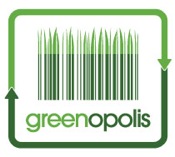Purim: Green around the Gills
The Jewish Holidays made simple.
The Jewish Holidays made simple.
Photo: Yosarian
The Jewish Holidays made simple: “They tried to kill us again, we survived, let’s eat!” On Purim, the holiday that celebrates the deliverance of the Jews during the Persian Empire from Haman’s plot to annihilate them, this includes drinking — lots of it. It’s like the Jewish Mardi Gras without showing your breasts.
According to tradition, one is supposed to celebrate Queen Esther outsmarting the wicked Haman by getting so drunk that one can’t tell the good guys from the bad guys in the story. Blotto. Smashed like a pumpkin. Green around the gills. But we want to address the other kind of green here.
We want to give those of you who will be taking this holiday to heart some tips on how to ‘green’ your Purim festivities. After all, at heart this is a story of life and renewal. Let’s start with the basic Purim “mitzvahs”. (“Sacred acts” in English)
They are:
-
The Reading of the Megilla (Book of Esther). Although the story and the reading are dead serious, everyone dresses up in funny costumes, either from the story or just creative outfits. Every time Haman’s name gets mentioned in the reading, folks use noisemakers, called groggers, to drown out the sound of his name. Kind of like Red Sox fans booing Johnny Damon.
-
The Festive Purim Meal
-
Sending Gifts of Food to a Friend
-
Giving Gifts to the Poor
Megilla Reading
It’s ok to work and drive on Purim, but why not walk, bike or take mass transit to your friend’s house or synagogue to read the Megilla? And if you want your own Book of Esther, try buying one at a second hand book shop. An old copy can have the looks and feel of ancient times and the story doesn’t change. Wear recycled clothes from a thrift shop for your Purim costume, and you can make groggers out of recycled or reusable stuff — like a can filled with bottle caps, scraps of wood, box of rice or pasta etc. Here’s a family craft project on groggers from soda cans and birdseed from It’s Purim Time!
Nice thing about this project is you can reuse the soda cans year after year, and feed the birds the seed!
Festive Meal
For this evening meal on Purim, use organic, local and/or fair trade food. That way you support the poor as well take it easy on the land. Make it pot luck with friends, invite a family down on their luck. Use real dishes that you can wash. Make organic hamentaschen.
As far as the drinking part goes, it is a custom and not obligatory, but if you’re going to drink, you might as well do it with organic beer, wine or liquors. Next day try our natural hangover remedies.
Sending Gifts
This is usually a gift of food. Again use local organic, and fair trade, and use a nice reusable basket or better yet, a reusable shopping bag that will end forever the “paper or plastic” question. For the more creative, wrap up your food items in a pretty hand towel, apron, cloth table napkins, oven mitts or other useful fabric item. Pack your package with chips, sunflower seeds or popcorn instead of plastic peanuts.
Gifts to the poor
This basic mitzvah is green by design. Donate to a local food bank or neighborhood pantry, to your synagogue or directly to a person you know is in need. It’s prescribed to give to 2 or more people before Purim.
Photo: Wikimedia Commons
Costumes for Purim Spiel
When the story of the Book of Esther is read, in which Jews in Persia were saved from death, children of all ages dress-up in costumes and head to the synagogue to hear the usually raucous retelling of the story.
One Jewish community near Detroit made their own costumes out of brown paper bags, and the children made noise-makers out of cardboard and plastic items they salvaged from home, empty Capri Sun juice pouches, egg cartons and cardboard rolls from toilet paper. Another synagogue adopted a new Purim slogan, "recycle, reuse and rejoice." Teachers have run recycling campaigns in their classrooms to teach about the Haman — like evils of wastefulness.
One rabbi I queried suggested that there was a recycling lesson in the story itself. The gallows that were built to execute Mordechai were “recycled” to be used on wicked Haman who built them in the first place. There might be a cautionary karmic tale for all of us in there. Gives new meaning to the word “hangover.”
Happy Purim!
Greenopolis.com is dedicated to our users. We focus our attention on changing the world through recycling, waste-to-energy and conservation. We reward our users for their sustainable behaviors on our website, through our Greenopolis Tracking Stations and with curbside recycling programs.
GREENOP5160

